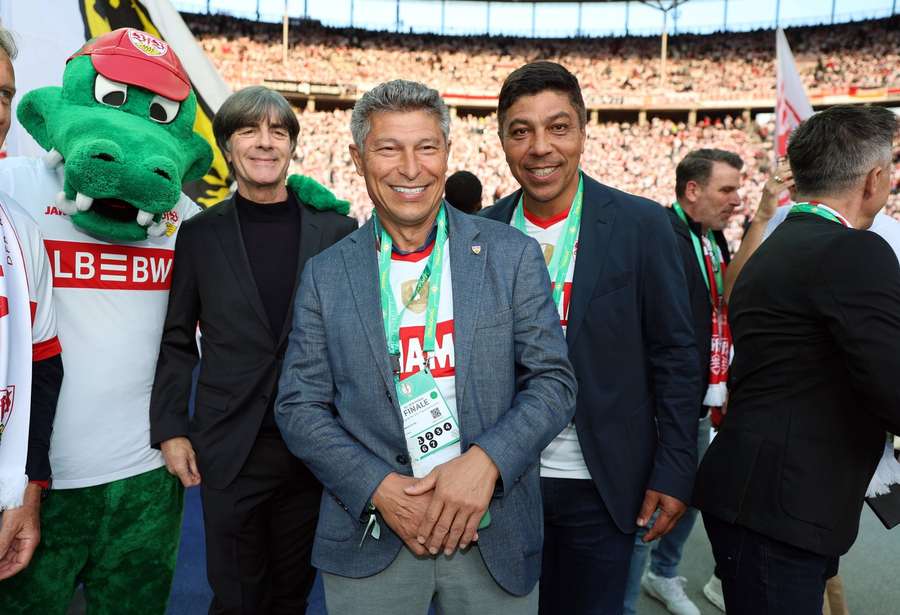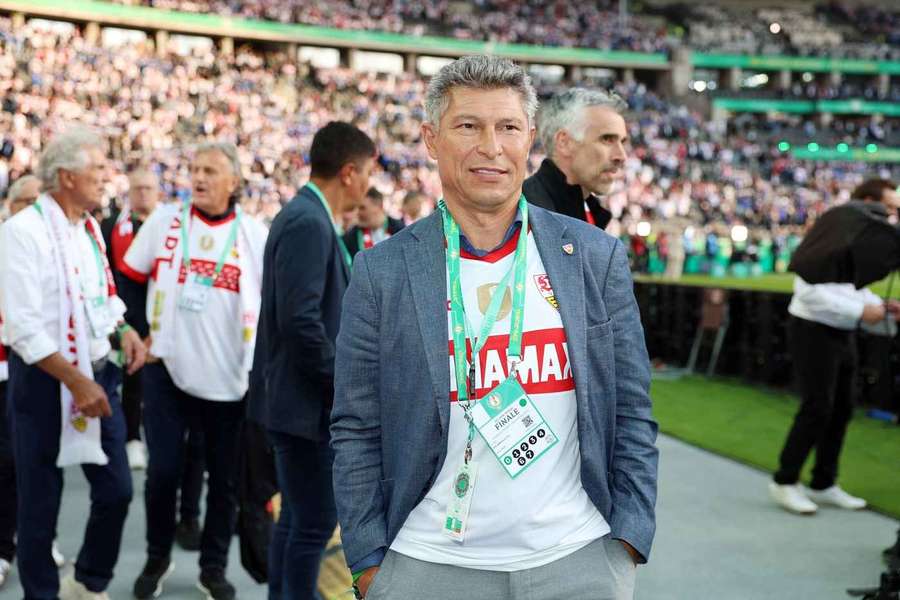In the first part of the interview, he looked back on his years at Stuttgart, gave his thoughts on the current situation at his former club and discussed Bayern Munich's domination of German football.
How did you see the German Super Cup final? To what extent can Stuttgart regret not starting the season with a trophy?
"As I said before the match, there can always be surprises, but looking at the squad's potential, Bayern Munich’s is frightening. They have the financial power to always have a very strong team, so we can’t really talk about a surprise. Unfortunately, Stuttgart lost this trophy for the second time in a row, but I hope they will play for it for a third consecutive time next season."
Looking at the game itself, the first goal came after a defensive blunder. In attack though, Stuttgart played well, with Manuel Neuer making two fantastic saves. Can positives be drawn for the Swabians and what can be expected from them this season?
"Stuttgart have always shown that they can compete on equal terms with the big teams, even with a smaller budget. Their success and style of play come from the good chemistry between the players and the coaching staff."
Going back to the end of last season with the cup win – their first since 1997, when you triumphed with it – watching Stuttgart lift the trophy again, what feelings did that moment bring and what memories did it revive?
"An identical situation. Back then, we played against Cottbus; this time, the opponent was Bielefeld. The difference was that now the victory came with more goals, which is not the most important thing.
"Most of the players from that team were in the stands, we enjoyed the win and then celebrated it properly."
What does this trophy mean for Stuttgart after such a long wait? How did it feel from the inside?
"Every trophy is important and plays a positive role. It’s something that remains in history, especially after such a long drought. In German football, there aren’t many clubs that can boast a big collection of trophies.
"For Stuttgart, the cup meant giving meaning and validation to the season, especially considering their rather inconsistent Bundesliga performance."
Was fighting on several fronts the main reason for the less satisfactory league performance?
"The Champions League turned out to be a big challenge for the team. Here again, we reach the topic of financial possibilities and therefore the depth of the squad with enough equally strong players. Stuttgart has good footballers, but can’t afford the depth of giants like PSG, Real Madrid, Barcelona or Bayern. This became clear at a certain point – more matches, fatigue piling up, which reflected in the Bundesliga performance."
This season, the challenge will be similar, though not in the Champions League but in the Europa League. How will the team handle it this time and is there a recipe for success?
"There is no recipe. The only thing you can do from the position of a club like Stuttgart is to get the maximum out of what you have."
The sale of key players in two consecutive seasons, like Serhou Guirassy, Enzo Millot and Waldemar Anton, also doesn’t help in keeping competitiveness…
"That’s how the club has operated for years, even in my time, when from the magic trio I was the only one left – (Giovane) Elber was bought by Bayern and (Fredi) Bobic by Dortmund. They only kept me.
"That’s the challenge for Stuttgart – to keep the level despite the inevitable departures of some stars."
Speaking of the Magic Triangle, it was formed under the leadership of Joachim Low. What do you remember from that early stage of his coaching career, and did you already see a future world champion in him back then?
"He was close to the players, he knew what he wanted from us without imposing too much of his own vision of the game. He simply wanted each of us to give what we were capable of and be ourselves on the pitch. That created good harmony between him and us, and led to the success we achieved in winning the German Cup."

But there was also the disappointment of losing the Cup Winners’ Cup final against Chelsea. What do you remember from that match?
"We had problems with injuries and suspensions of players we couldn’t use in that match. For us, the absence of even one or two players was huge. Still, we played a good game – I remember the first chance was ours and I could have scored. It was an even match in which, in the end, we were outsmarted by Zola."
Let’s return to the present and the start of the new Bundesliga season. Have things gone back to “normal” after Bayer Leverkusen’s fireworks, and are we about to see another series of Bayern titles?
"History shows that rarely is the title in this league defended by a team that isn’t Bayern Munich. Dortmund was to some extent an equal rival, now Leverkusen is trying to be one. But I think that unless Bayern stumble themselves in some way, they can’t fail to become champions again because of the squad potential they have. Still, let’s not forget the European matches' factor."
How do you assess the changes in the squad? The departures of legend Thomas Muller, Kingsley Coman and Leroy Sane. At the same time, however, they bought a winger from the English champions, Luis Diaz.
"Transfers at Bayern are at a completely different level financially, and from there, in terms of names and player quality. The focus is on the Champions League, and that’s exactly the level the new signings must match."
Are you surprised that in recent years Bayern have turned to the Premier League, which used to be an unusual market for them?
"The football business itself has changed, with new players like PSG and Manchester City joining the existing Barcelona, Real Madrid and Liverpool, making competition fierce. Given the budgets these clubs have, at a certain point you can’t only recruit from the Bundesliga anymore.
"The Premier League turns over twice as much money compared to the German league, which of course makes it more attractive for top talents. To compete with the clubs I just listed, you have to buy from that league as well."
How would you respond to the criticism that the Bundesliga is a one-horse race?
"That’s the reality. We can’t deny that Bayern Munich have earned their status in Germany. That history and strength are the product of wise decisions made by smart people over the years, creating the machine that the club is today. The job of the others is to learn and try to level with them somehow."

